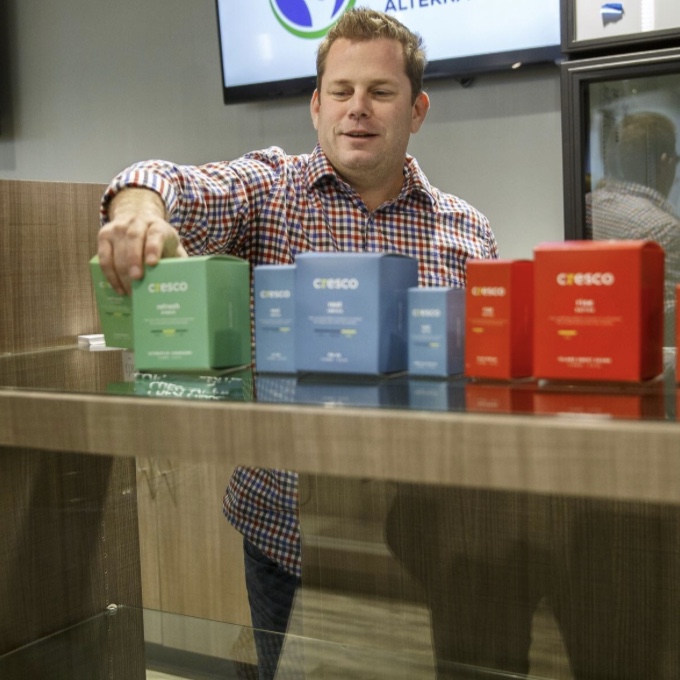Bill would let people get medical marijuana instead of presciption opioids
A bill that would allow people who have been prescribed opioids to apply for a temporary medical cannabis card passed a Senate committee Wednesday.
The measure, Senate Bill 336, passed the Senate Executive Committee 16-1, with Senate Minority Leader Bill Brady, R-Bloomington, casting the lone no vote.
If signed into law, it would amend the medical marijuana program to allow those prescribed opioids to apply for medical marijuana instead, the idea being to provide a safe alternative to highly addictive and sometimes deadly opioids.
“Research shows that as the number of opioids prescribed has risen over the past few decades, so has opioid addiction, overdose and death,” said state Sen. Don Harmon, D-Oak Park, the bill’s main sponsor. “This is a crisis, and it is rapidly getting worse. Research has also shown that medical cannabis is a safe alternative treatment for the same conditions for which opioids are prescribed.”
More than 60,000 people died from drug overdoses in 2016, the vast majority caused by opioids or heroin.
The state’s medical marijuana program, passed in 2013, currently requires participants to be suffering from a debilitating condition, like seizures or Parkinson’s disease, in order to qualify.
If passed, those prescribed opioids would be able to participate in the program if their application is approved by the state. And due to the urgency surrounding the opioid crisis, the background check and fingerprinting process normally required for applicants of the program would be waived that first year, lawmakers said.
If they want to continue in the program, participants would have to go through the normal process after that first year.
“I think it’s important to understand we’ve got data now to show that this is working when making this available to people,” Steans said.
The Illinois Department of Public Health (IDPH) testified against the proposal, citing, among other things, the lack of resources to deliver the results within the timeframe allotted in the bill.
Conny Moody, the IDPH deputy director for health promotion, said she would have to add 30 to 40 new positions in addition to the current staff of 13 in order to meet the bill’s demand to turnaround applications in 14 days.
However, some senators — while voting yes — said the quick turnaround is among the many provisions that could be amended as the bill goes before the full Senate.
Contact Brenden Moore: 782-3095, bmoore@sj-r.com, twitter.com/brendenmore13.


